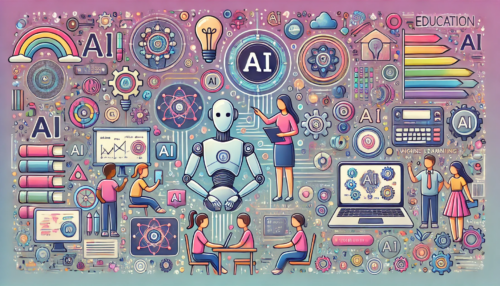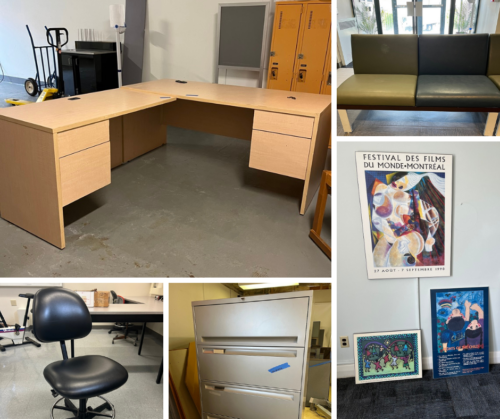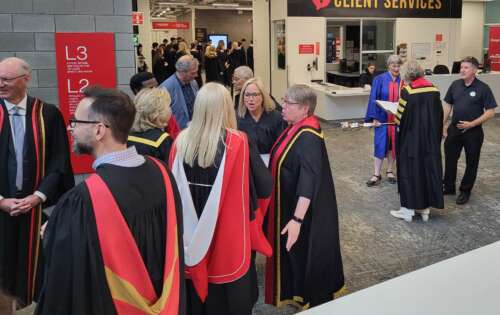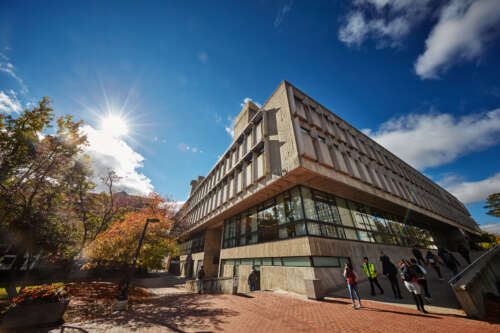This is the sixth article in the “Bringing Our Time to Life” series, highlighting how U of G is taking action on our strategic plan. View all Strategic Plan stories.
Our Time: University of Guelph Strategic Plan 2022-27 lays out an ambitious vision through defined strategic priorities and goals. To achieve these goals, the University needs to have the resources to take bold action and build our future on a solid and sustainable foundation.
By leveraging our financial and digital capacity, U of G will work to restore financial health to the University, implement a budget allocation model that accelerates the strategic priorities and drive innovation by adopting technological and digital solutions.
Learn how units across U of G are already leveraging their financial and digital capacity.
U of G community explores how AI impacts teaching
 This June, faculty, instructors, students and staff from U of G, University of Guelph-Humber and Ridgetown Campus gathered for a virtual event series on Teaching with Artificial Intelligence (AI). Offered by the Office of Teaching and Learning, the series was a result of a strong campus collaboration with the Centre for Advancing Responsible & Ethical Artificial Intelligence (CARE-AI), OpenED, the Office of Quality Assurance, the McLaughlin Library, and Contact North and featured 17 workshops, panels and playgrounds.
This June, faculty, instructors, students and staff from U of G, University of Guelph-Humber and Ridgetown Campus gathered for a virtual event series on Teaching with Artificial Intelligence (AI). Offered by the Office of Teaching and Learning, the series was a result of a strong campus collaboration with the Centre for Advancing Responsible & Ethical Artificial Intelligence (CARE-AI), OpenED, the Office of Quality Assurance, the McLaughlin Library, and Contact North and featured 17 workshops, panels and playgrounds.
Together, attendees experimented with tools, explored how to create transparent course policies that empower students to use AI appropriately and effectively and shared strategies to use AI to design course activities, materials and assessments. Recaps and recordings of these events are available on the Office of Teaching and Learning website and the team is open to feedback about what the campus community wants to see in future sessions.
Project to enable tours U of G campus from anywhere in the world
As U of G recruits students from all over the world, we need tools to bring the U of G campus experience to future Gryphons wherever they are. Computing and Communications Services (CCS), in collaboration with many campus partners such as the Office of Registrarial Services, Student Experience and Communications and Marketing, is currently exploring a software solution to offer digital campus tours in multiple languages and enhance our ability to recruit students, orient incoming students, work with potential and current donors and onboard new staff and faculty.
The digital tour technology will integrate with a new digital wayfinding system that is also under development. Digital wayfinding will enable all visitors to campus to easily navigate the University both inside buildings and outside, find accessible entrances and washrooms (including gender-neutral washrooms) and enjoy improved safety with safer nighttime routes and wayfinding to safety equipment like defibrillators. In the long-term, digital wayfinding will also integrate with student calendars, Microsoft 365 tools and a student mobile app. By using and integrating these digital tools, U of G will enhance both the digital U of G experience and the experience of physically navigating campus.
Furniture Swap enables staff to repurpose excess furniture

Why order a brand-new desk or office chair when you can find one for free right on campus? That’s the goal of U of G’s Furniture Swap, a campus-based program that aims to keep excess furniture such as desks, filing cabinets and office chairs out of landfill and in use. For units trying to make the most of their budgets, this free service enables staff and faculty to find furniture at no cost. When someone on campus is interested in the furniture, Physical Resources will pick it up and deliver it for free.
Started by Paul Caruso when he was a physics and philosophy student, the furniture swap program has been running for 10 years. Physical Resources created the app in 2019 and continues to manage the program and website. Since the app was launched, Furniture Swap has repurposed 84 workstations, 1,070 chairs, 215 tables, and 395 storage items for a collective weight of more than 152,000 lbs and combined value of approximately $56,000.
Volunteer management software saves time and effort for convocation planning

In June 2024, the Office of Ceremonies and Events introduced Signup.com to manage volunteer sign-ups from faculty and staff for convocation. By using the software, the team was better able to manage and communicate with volunteers and users had enhanced ability to see their registration as well as the registration of others and make updates.
Claire Alexander, associate director of Ceremonies and Events, found the software incredibly helpful. “For a very reasonable cost, the software saved our team days of labour during a very busy time, convocation, and improved the accuracy of our lists,” said Alexander. “We also received a lot of positive feedback about the user experience, so it really was a win all-around.” The team is currently investigating how they can expand the platform to other teams to continue to improve the management of event volunteers on campus.
Digital Learning Commons provides access to open educational resources
 To support teaching and learning at U of G, the McLaughlin Library hosts the Digital Learning Commons (DLC), an online portal of open educational resources created by library employees. Faculty and instructors can use these resources in their course development to support students in cultivating academic and professional skills like time management, research and writing strategies, data and digital literacy and more.
To support teaching and learning at U of G, the McLaughlin Library hosts the Digital Learning Commons (DLC), an online portal of open educational resources created by library employees. Faculty and instructors can use these resources in their course development to support students in cultivating academic and professional skills like time management, research and writing strategies, data and digital literacy and more.
The resources are quite popular and one of the items, a video on how to create a concept map, surpassed one million views on YouTube this year. Although the DLC is designed with teaching and learning in mind, many of the resources can help faculty and staff improve their digital skills, such as creating an accessible word document, creating a digital design with canva, and creating diagrams in Google Drawings. The team has recently added an index page so users can view all resources in an easily browsable list and more work is underway to add search and filter controls.
These are just a few examples of the many ways our campus community is realizing the vision laid out in Our Time.
Have a suggestion of research, an initiative, an individual or a program we should feature? Email campusnews@uoguelph.ca.
